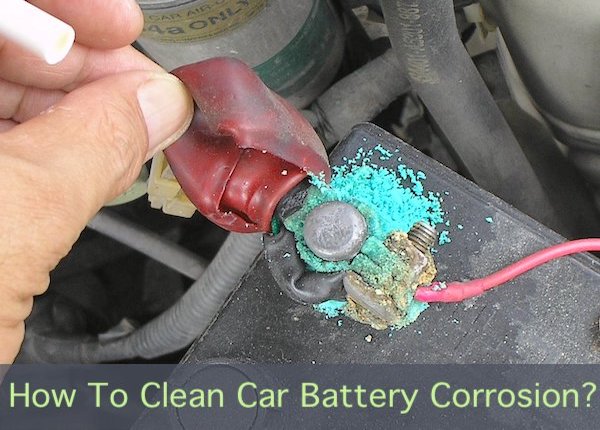What Temperature Does Windshield Wiper Fluid Freeze?
Are you a car owner who lives in an area that experiences extreme temperatures? There are many considerations that you should make. After enjoying fun activities during the summer and autumn seasons, time is ripe for you to gear up for the winter season.
Among the many preparations that you should make include switching tires and putting winter tires, checking the antifreeze level and so on. While everything else might work perfectly well during the winter season, one thing that might fall off your radar is the windshield washer fluid. It can freeze due to the low temperatures experienced during the winter season.
Here, you might try to clean the windshield of your car but nothing is coming out of the nozzles. If this happens, you should not worry as there is a way to mitigate this problem. This article will shed more light on how to prevent windshield washer fluid from freezing and how you can check if this fluid is frozen or not.
What Temperature Does Windshield Washer Fluid Freeze?
Like we mentioned above, the windshield washer fluid can freeze if subjected to low temperatures, such as during the winter season. However, the temperature at which this fluid freeze varies depending on its type.
For instance, Bug wash which is actually a solution that helps to remove bug remains and other contaminants that might be hard to remove on your windshield normally freeze at temperatures below 32°F.
On the other hand, washer fluid antifreeze comes with different formulas and different freezing points. Some normally have a freezing point of -20°F while others have a freezing point of -50°F.
It is imperative to note that this washer fluid normally contains alcohol that helps lower its freezing point significantly. A good example of this alcohol is ethanol, methanol or ethylene glycol mixed with water.
How To Keep Windshield Washer Fluid from Freezing?
Although the windshield washer fluid is bound to freeze when subjected to extreme temperatures, there are a few ways that can help you aver this situation. They include:
1. Insulate your garage
If you normally reside in a place where the temperatures get so low during the winter season, you should ensure that your garage is well insulated. By insulating the garage, you will be able to keep the interior temperatures warmer than the outside and consequently, your windshield wiper fluid will remain warmer for longer.
2. Use an engine block heater
You will note that engine block heaters are commonly used in areas that experience cold climates. In most instances, they are used on diesel engines as it might be difficult for you to start these engines whenever it is cold.
Besides keeping the motor oil from getting cold, these block heaters will also prevent other engine compartment fluid from getting cold as well. A good example of these compartments fluid is the windshield washer fluid. The engine block heater is ideal for use if your car is parked for a long period of time.
3. Install a windshield washer fluid heater
Apart from the above-mentioned measures, you can now install a windshield washer fluid heater and prevent wiper fluid freeze. However, this depends on the kind of car that you have.
This is because some cars normally come equipped with windshield washer heaters while others do not have this equipment. If your car does not have this heater, you can add it and this will step up your windshield defrosting efforts.
It is important to note that these heaters normally heat your windshield fluid on demand while your car is running. Once the fluid is heated, you can use it to clear the clogged windshield washer lines and even remove any gunk or ice from your windshield.
4. Ensure that your washer fluid is freeze-resistant
As we speak, there are certain windshield wiper fluids that come with additives that make it resistant to extreme temperatures. Some of the free-resistant ingredients include the:
- Antifreeze
This is one of the additives that help keep water from freezing in case it is subjected to temperatures below 32°F. It is normally made by combining water with ethylene glycol or propylene glycol. In most cars, you are likely to find antifreeze made of ethylene glycol.
- Alcohol
When it comes to alcohol, methanol is the type of alcohol that is mostly used in windshield washer fluid. Although methanol is effective, it’s quite toxic. This has made ethanol to become one of the most preferred choices when it comes to alcohol. With ethanol, you will not only keep your windshield washer fluid thawed but also help you defrost a frozen windshield.
When looking for washer fluid, you should look for the one that indicates that it is freeze-resistant. If you do not see a freeze-resistant label or some variation obit, chances are that it will not prevent freezing. Therefore, you should be keen and look for the one that bears that label for optimal results. This kind of windshield wiper fluid might cost more money compared to its peers but it is worth it.
How To Check If Your Washer Fluid Is Frozen?
It is no secret that a frozen washer fluid can be very frustrating when you need it the most. The good news is that you can now determine if your washer fluid is frozen or not. To do this, you should simply pop your hood and then look for the reservoir tank.
You will realize that this tank is usually against the side of the wall of the car and towards the front. Therefore, you will be able to locate it with a lot of ease.
Here, you will see a cap that has the wiper with a drop of water symbol on it. This is actually the reservoir tank of the washer fluid. Since it is normally clear, you can inspect it and see if the fluid present is frozen or not.
What To Do If My Windshield Washer Fluid Is Already Frozen?
There is nothing as frustrating like discovering that your windshield washer fluid is frozen already. This can actually hinder you from cleaning your windshield screen the way you ever wanted. In fact, you might suffer from poor visibility issues when driving your car.
Such usually happens during the winter season. The good news is that you can now mitigate this problem once it occurs to you. Here are some of the best ideas that can help you get started:
1. Put your car in a heated or insulated garage
If you notice that your windshield washer fluid has frozen, you should not hesitate to park your car in a heated garage. This way, you will allow the washer fluid in the reservoir tank to thaw more effectively. For optimal results, you should give this process quite some time. Probably, you should park your car in the evening and let the heated garage do its work overnight.
After several hours, the liquid in the reservoir tank will thaw. Once this happens, you should drain it out of the tank and then replace it with winter blend washer fluid. This strategy has worked well for many car owners. However, you must have an insulated garage at home for you to enjoy this luxury.
2. Use a salamander heater
Sometimes, you might not have access to a heated garage. In this case, the option that you might have is to use a salamander heater. You will note that this heater normally runs on propane or kerosene along with electricity to yield a blast of forced hot air.
The good news is that this heater will warm several parts of your engine compartments within no time. One of these compartments is the reservoir tank where the windshield wiper fluid is.
All you have to do is to point this heater to the direction where the reservoir tank is and then washer fluid will thaw. Thereafter, you will be able to drain it from the system. As you do this, you should be careful not to cause further damages.
If you are not a pro, you can look for an expert to help you with this undertaking. More importantly, you should use this heater in a ventilated area as it can get very hot when used over time.
3. Use a hairdryer
The above-mentioned ideas might be viable but some people might not have access to an insulated garage or a salamander heater. In this case, you can consider looking for a hair dryer. For most people, they can readily access the hair dryer or better still a heat gun.
The hair dryer also uses the same principle like that of a salamander heater. It is capable of heating up the frozen fluid in the reservoir tank until you can drain it out of your system. This option also needs you to be patient as it can take some time.
You just need to point the hair dryer at the frozen reservoir tank and the hoses until the liquid starts thawing. You can give special attention to the washer fluid without heating the surrounding air and you will be good to go.
4. Use heating pads
Heating pads can equally help you to liquidity the frozen windshield wiper fluid. All you need to do is to stuff a few heating pads in and around the reservoir tank. For optimal results, you should lower them so that heat can rise upwards. By doing this, the frozen liquid will warm up and start flowing seamlessly.
5. Remove the reservoir tank from the car
Apart from the above-mentioned methods, you can remove the reservoir tank from the car and put it in a warm place. Preferably, you should put it near a heater vent. Ideally, you should put it in a bucket or in a pan so as to prevent the liquid from pouring on the floor as it thaws.
You can also flush in hot water in the frozen reservoir tank so as to flush the fluid out of the lines and nozzle. Thereafter, you can now fill it with a stronger windshield wiper anti-freeze and finally put it back to your car. This method works wonders but you must be a pro. If you are a novice, you can hire a professional to help you out.
Recommended Article
Final Thoughts
From not being able to clean your windshield properly to poor visibility when driving, there are many problems that you can encounter if your windshield wiper fluid has frozen. Although this problem is very rampant in areas that experience the winter season, you can mitigate it using the above-mentioned methods.
More importantly, you can consider using a washer fluid that is resistant to freezing. Although this method is costly, there is value for money. Consider the above-mentioned ideas and windshield wiper fluid freezing will be a thing of the past.
Frequently Asked Questions (FAQ)
Why does the windshield wiper fluid freeze?
To start with, you will note that all windshield wiper fluid normally uses nature’s most powerful solvent as a base component, which is basically water. Although this windshield wiper fluid has many additives that help lower the freezing point, sometimes this fluid is exposed to air and thereby the alcohol present in this fluid evaporates. Since the alcohol that keeps the fluid from freezing is no longer there, the water left is bound to freeze upon being subjected to extreme temperatures.
Are all windshield washer fluid the same?
No. You will realize that some washer fluids come in different formulas. Some are ideal for melting snow and ice while others help to remove bugs, dirty and tar. Depending on your needs, you should choose the one that suits you.
Can you put water instead of the windshield wiper fluid?
Yes. In fact by doing this, you will be able to save more money and even reduce pollution. However, since water alone does not have anti-freezing properties, you might encounter some inconveniences if your area experiences extremely cold temperatures. Your wiper system might get damaged in the long run.
Is it bad to overfill washer fluid?
Yes. Ideally, you should fill it until it reaches the ¾ level. Overfilling the reservoir can cause many problems when it gets too hot under the hood of your car. The high temperatures can make the fluid expand and can thereby break the container or even cause leaks.
Can I use hot water to defrost my windshield?
While this might seem to be a good idea as it might help melt the ice on the car’s windshield, the frozen glass can shatter due to sudden change of temperature.




